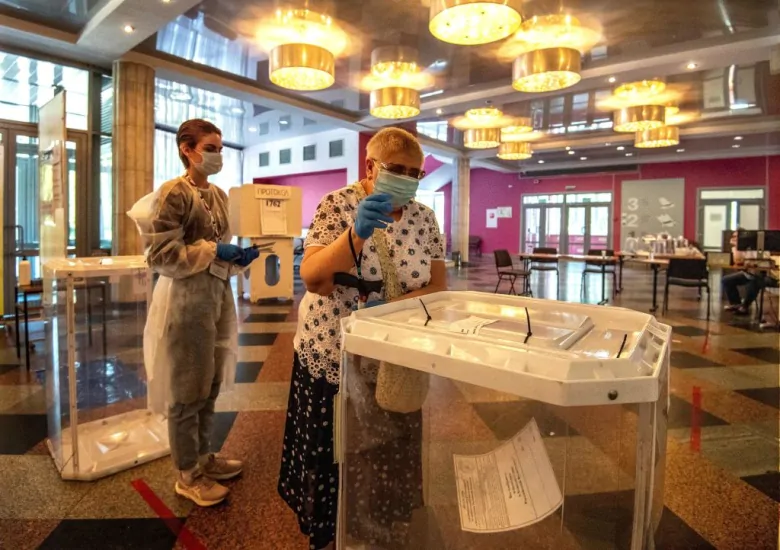Here’s what’s happening with COVID-19 around the world on Saturday.

The latest:
- India coronavirus cases now total more than 500,000.
- Russia’s daily number of new COVID-19 cases stays below 7,000.
- Texas and Florida clamp down on bars reopening.
- Lessons Canada can take from the U.S.’s mishandling of COVID-19.
- The unintended consequences of surgery delays during COVID-19.
- Is it safe to play cards with friends? Your COVID-19 questions answered.
- 16 new COVID-19 cases have been linked to a salon in Kingston, Ont.
- Canada is nearly self-sufficient in PPE production, says Trudeau.
India‘s confirmed coronavirus cases crossed half a million on Saturday with another record 24-hour jump of 18,552 infections.
The country’s Health Ministry reported 384 new deaths, raising the total to 15,685.
The surge prompted authorities in the northeastern state of Assam to impose a two-week lockdown in the state capital of Gauhati. About 700 new cases were reported there in just four days.

Health Minister Himanta Biswa Sarma said the rest of Assam will be placed under a night curfew and weekend lockdowns.
He urged people to store essential goods and signalled a tighter lockdown where even grocery stores would be closed.
China has reported an uptick in new coronavirus cases, a day after health experts said they expect an outbreak in Beijing to be brought under control soon. The National Health Commission said Saturday that 21 cases had been confirmed nationwide in the latest 24-hour period, including 17 in the nation’s capital.
City officials have temporarily shut a huge wholesale food market where the virus spread widely, reclosed schools and locked down some neighbourhoods.
China has reported 83,483 confirmed cases and 4,634 deaths in the global pandemic.
South Korea has reported 51 newly confirmed cases of the coronavirus as fresh clusters continue to emerge in the densely populated Seoul area.
They bring the national caseload to 12,653, including 282 deaths. Thirty-five of the new cases came from Seoul and nearby cities and towns, which have been at the centre of a COVID-19 resurgence since late May. Twelve others were linked to international arrivals.
More than 9.82 million people have been reported to be infected by the novel coronavirus globally and more than 494,000 have died, according to a tally from Johns Hopkins University. Infections have been reported in more than 210 countries and territories since the first cases were identified in China in December 2019.
Russia on Saturday reported 6,852 new coronavirus cases, a figure that keeps the daily rise below 7,000 for a second day in a row for the first time since late April. The new cases take the cumulative nationwide tally to 627,646.

The country’s coronavirus response centre said 188 people had died of the virus in the last 24 hours, bringing the death toll to 8,969.
On Friday, the United States recorded 45,242 new cases of COVID-19, the largest single-day increase of the pandemic, according to a Reuters tally, bringing the total number of Americans who have tested positive to at least 2.48 million.
The new record for positive COVID-19 tests comes as several states at the centre of a new surge in infections took steps back from efforts to ease restrictions on businesses. COVID-19 is the respiratory illness caused by the coronavirus.
Texas bars ordered closed
Texas Gov. Greg Abbott ordered bars across the state to close by midday on Friday and required restaurants to limit indoor seating capacity to 50 per cent, while Florida state officials told bars to immediately stop serving alcohol on their premises.

Abbott’s announcement stunned Texas bar owners, who said the governor, a Republican in his second term, had given them little notice. Mark Martinez, owner of a Lubbock beer garden, learned only when friends texted him the news at around 8 a.m.
“I spent thousands of dollars in inventory getting ready for this weekend. I could have really used that [money] for my rent, which is due next week,” said Martinez, 44.
WATCH | Houston hospitals ‘weeks away’ from limit:
Health care officials in Houston say most hospitals in the city are operating with 90 per cent of intensive care unit beds occupied. 1:47
“We were just getting to where we could pay the bills,” said Tish Keller, owner of the Tripl

